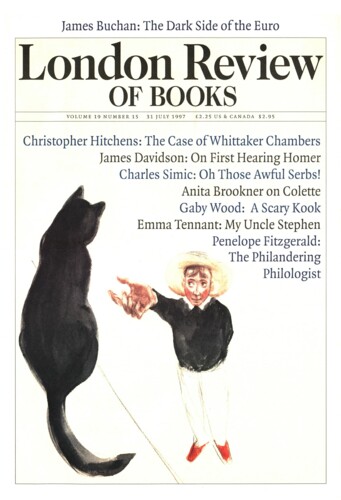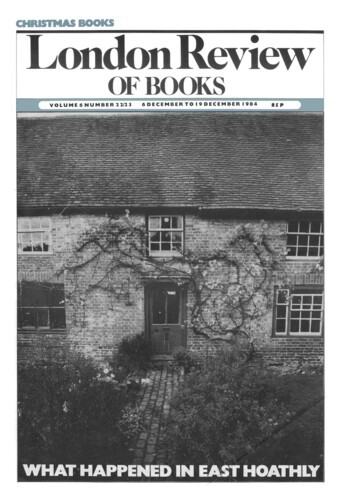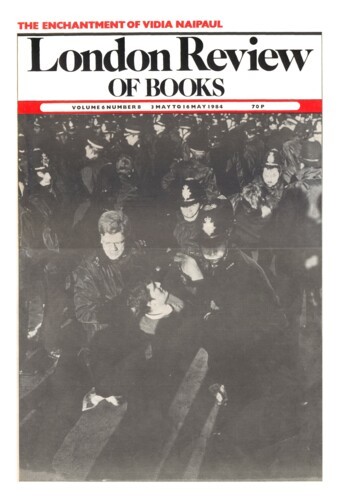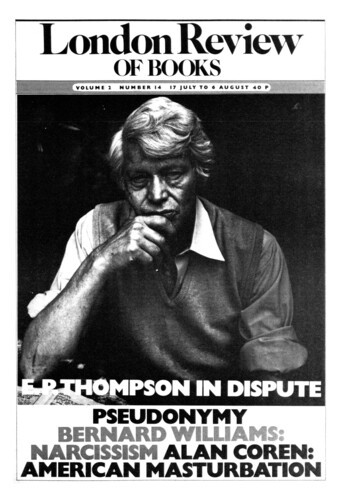A Visit to My Uncle
Emma Tennant, 31 July 1997
Pamela, my grandmother, is in her garden. The photograph shows a woman in the cloche hat and low, belted dress of the early Twenties; the face is smooth, and the jaw more pronounced than in the dreamy pictures of the years before the war. The sun is shining: whoever holds the camera is a favourite, neither a stranger nor a threat.





